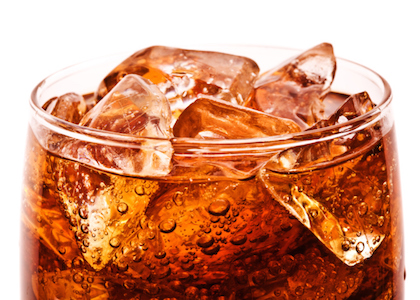
Added Sugar vs. Natural Sugar
By Stacy Kennedy, MPH, RD, CSO, LDN; Reboot Nutritionist
Today the Coca Cola Company’s Beverage Institute for Health & Wellness is hosting a professional education webinar about how, “carbohydrates are an important part of a healthful diet and sugars in foods and beverages can be enjoyed as part of a sensible, balanced diet and active lifestyle.” When I read this announcement, it reminded me of the time my Aunt took my sister and me (she was 7 years old and I was 12) to the Phillip Morris cigarette museum in Richmond, VA. I’ll never forget walking into the factory and watching thousands of cigarettes go by on big machines and her stopping us in our tracks, saying in her thick southern drawl, “Girls… take a deep breath! Doesn’t that smell simply marvelous!!!”
I received notice of Coca Cola’s free opportunity for education credits, required to maintain my state license and professional credentials, from a few colleagues. We got into quite a lively discussion in the office about the mix of industry and health information but most of all the hot button topic at hand, sugar.
Sugar has certainly been demonized in the media lately and many of my patients are actively working to drastically limit their intake and report feeling fearful of consuming any at all. But sweetness from sugar or honey has been in existence in the human diet for thousands years. So why all the fuss now?
Research shows that high intakes of added sugars commonly found in packaged, processed foods and beverages are attributed to a wide variety of health problems including diabetes, cancer and obesity. Added sugars act differently in the body from sugars found naturally in unprocessed fruits, vegetables and whole grains. For example, one study looking at sugar intake and cancer risk found that consuming fresh fruit and applesauce did not contribute to the observed increased risk in the study participants.
On the other hand, excessive consumption of sweetened beverages tops most scientists, medical professionals and even government officials lists as the #1 offender for obesity and other major health problems, especially in children. New York City just instituted a law banning the sale of any soda over 16 oz (500 mL) including energy drinks and iced teas. Commercial juices, diet sodas, dairy drinks and alcoholic beverages are not included in this ban. Larger sized drinks can be still be purchased in grocery and convenience stores.
Is it all or nothing? The prevalence of sweet taste from sugars and artificial sweeteners in our day to day diet is at an all time high. The amount of sugar added to many beverages and foods is also greater then in the past. This combination of expecting sweet flavors in just about all of our foods and fluids plus needing large amounts of substances that are often highly processed, to get the desired taste, could be the biggest concern in the sugar debate. There’s still room to have a sweet treat once in a while, but being smart about what it’s made from and what you eat it with might make all the difference.
Can we learn about credible, evidence-based science from a company that sells the products in question? The Coca Cola Beverage Institute uses well credentialed experts to lead their seminars and present a wide variety of health and wellness topics including exercise and mindful eating. There are also many others out there like the Gatorade Sports Science Institute that publish and host evidence-based articles and online opportunities for continuing education credits. But it’s easy to see how learning about the benefits of sugar from one of the largest sellers of sugar containing products brings up a big red flag. I won’t be signing up for this free webinar! And luckily, my younger sister and I weren’t tempted to start smoking after visiting Phillip Morris either.
If you’re eager to learn more about the power sugar exerts over your brain, and break free of your cravings, check out our special Guided Reboot for Sugar Addiction, which starts September 29. (You’ll be done with this 30-Day Guided Reboot before the holidays!)